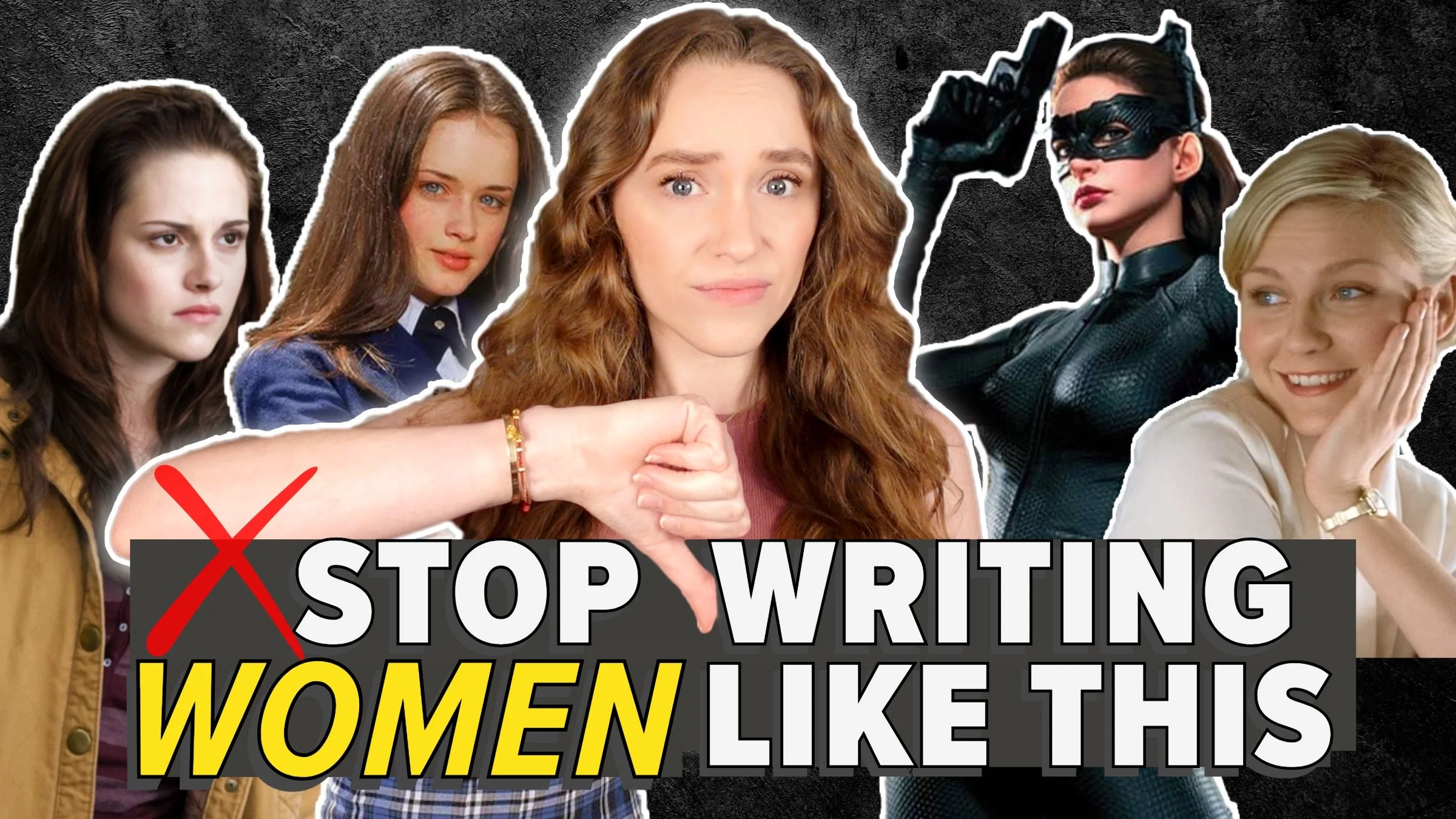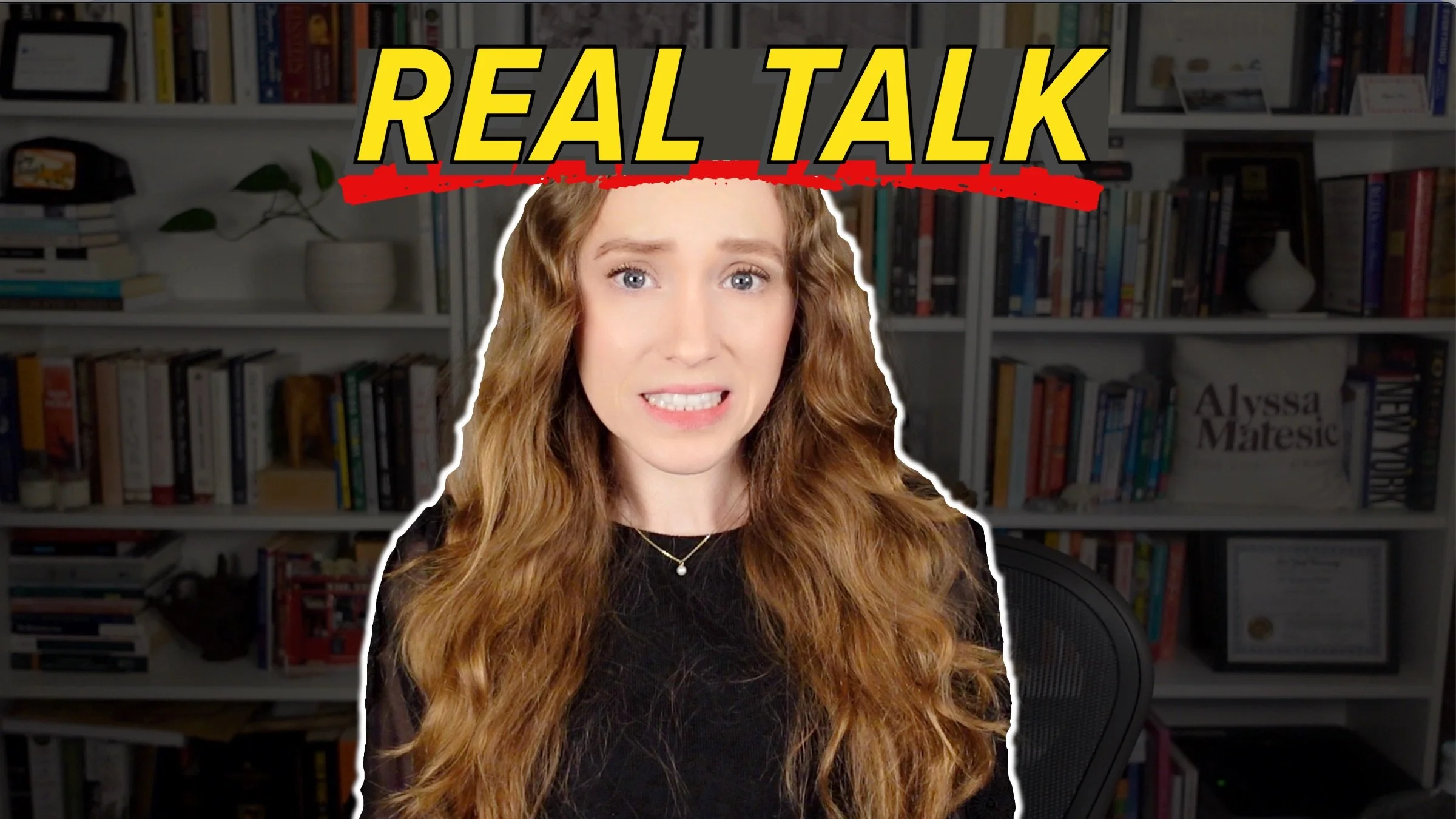How to Choose a Book Editor: 3 Critical Steps
HIT PLAY OR READ THE POST BELOW:
Working with a professional book editor can elevate your manuscript, whether you are planning to publish traditionally or pursue self-publishing. Admittedly, I am biased as a book editor myself, but there are a lot of benefits to working with someone who understands the mechanics of an effective story.
The reason hiring an editor is so crucial is because they provide a critical third party eye on your manuscript. They will help you see things in your story that you can't see for yourself because, at this point, you're too deep in it. If you're looking to pursue traditional publishing, an editor is also someone who understands the book publishing industry. Plus, editors’ feedback will be detailed and actionable and allow you to elevate your story from one draft to the next.
Ready to work with a book editor? Here are three key steps you should take when figuring out how to choose a book editor for your project.
1. Determine What Type of Editing You Need
I'm going to use a metaphor here: when you go to the hairdresser, you wouldn't just ask for whatever haircut the stylist wants to cut. The results could be disastrous if you don't give some type of direction of what you're looking for. The exact same goes for editing. There are many types of editing, the main ones being an editorial assessment, a developmental edit, a line and copy edit, and a proofread. Most books actually need all of those edits at some point in their lifetime. But not every editor offers all of these services.
I am a structural or developmental editor, so I focus on editorial assessments and developmental editing. Editors in general tend to focus on one or two types of editing.
You want to make sure that whichever editor you work with has the expertise that you're looking for. While this may seem obvious, I have been approached many times for copy editing and proofreading even though I specify my services on my website. Double-checking will save you the time and effort of reaching out to the wrong person.
2. Research Their Background
The second step in how to choose a book editor for your project is to research their background. Say that you've determined that you need a developmental edit. You've done a quick Google search or you searched an editors’ database and you have a list of names. Now you need to determine which one is right for you. But how?
Just like with literary agents, book editors also come from different backgrounds that will affect the way they edit. For instance, have they worked mostly in academia? In that case, if you're writing a nonfiction academic book, they could be a perfect fit. If their background is in the publishing industry and you're writing a book that you hope to get published by a major publishing house, they could add that level of industry insight that you're looking for.
Some other things to keep in mind is if they are a professional editor full-time or if they're also an author themselves, because that will change their approach. An author-editor can sympathize more with your plights as a writer, whereas a full-time editor will have more experience with giving efficient, to-the-point feedback.
Just as you want an editor who provides the type of editorial service you're looking for, you want an editor who works specifically in the genre that you write in. A thriller editor may not edit your fantasy book the way a fantasy editor would. They might not recognize certain tropes you’re using, for example.
So, if an editor doesn’t have their preferred genres listed on their bio, at least check out some prior books they've edited. By checking out those books’ summaries, you can see if the feel and genre of those books aligns with your project.
Ideally, you would find an editor who has experience with books that are like yours and appeals to a similar audience, because they're going to be able to best help you refine your story.
3. Ask for Samples
The third step in finding a book editor is to ask for sample edits. Any reputable editor will offer a free sample edit of a certain number of pages so that you can get a feel for their editorial style. This is a great opportunity for you to determine if their style of feedback works for you because, as we know, editing is a subjective business.
You need to ensure the type of communication style and the type of feedback you're going to get is what you're looking for and is helpful to you. If you're looking for something like an editorial assessment, the editor should be able to provide a sample of an assessment from a previous project.
If the editor doesn't say upfront that they're going to provide a sample edit, make sure you ask for it anyways. This is something that anyone who is working in the industry is expected to provide and they should be willing to give you a sense of what their feedback is going to look like, because editing is a big investment. An editor who cares about the authors they work with will want to make sure that you are totally aligned before you pay for any services.
Book Editor Red Flags
I want to also provide some red flags to watch for when you're figuring out how to choose a book editor.
There's no specific credential an editor needs in order to offer book editing services. There are editing certificates and editing societies out there, but there's no official certification or registration that every single book editor needs in order to work in this business. Because of that, you need to do your own research to ensure that the editor is qualified.
As you're perusing online for a book editor, these are the things that should make you think twice.
Red Flag #1: They Offer All Types of Editing
If the editor says they offer all types of editing — editorial assessments, developmental editing, line editing, copy editing, and proofreading — it could be a red flag. This statement comes with a caveat, as I’m sure there are successful editors that are able to offer all these services. I theoretically could, but I also recognize that I'm not the best copy editor in the world. So, I want my writers to work with someone who is an expert on copy editing rather than going with me for that specific service.
I believe in working with an editor who specializes in a specific type of editing and then working with a different editor when your book is ready for a different type of editing. You’ll get a broader variety of perspectives that way, plus, it ensures that you’re getting the very best editor for each editing pass.
Red Flag #2: They Are Vague
Another red flag to watch for is if the editor is vague about what their services include. Again, they should be able to give you specifics on their services as well as samples, so you know exactly what to expect in their feedback.
Red Flag #3: They Edit All Genres
The next red flag is if the editor says they edit all genres, including every type of fiction and every type of nonfiction. There are so many genres out there that it’s impossible for someone to be an expert on them all. For example, I've never edited an academic book or a self-help book. So if someone comes to me with one of these genres, I'm upfront with them and encourage them to find another book editor who has the expertise they’re looking for. Working with an editor is a partnership, so you want to make sure that they are completely qualified to provide the feedback for your specific type of book.
Red Flag #4: Their Rates Are Too Low
Another red flag is if the editor’s rates are below market. Remember: if it seems too good to be true, it probably is. Editing is an investment, and it can be costly because it requires a tremendous amount of work. Every editor sets their own rates, so you’ll want to get multiple quotes from editors. Then, if you’re looking at your list of potential editors and notice that some are super cheap in comparison to the average, chances are something’s a bit off and you should move forward with someone else.
Red Flag #5: They Don’t Offer Sample Edits
As mentioned earlier, any reputable editor should want you to see their work and the type of feedback they provide. This is typically a free service, so if they request a fee to provide an editing sample, run!
Red Flag #5: They Have No Presence Online
The last red flag is if the editor doesn't have an online presence or profile detailing their bio and their background. Ideally, you should be able to find biographical information about a book editor online, detailing if they have prior roles in the industry or published books. If there’s absolutely no information about them online, that is definitely suspicious.
I hope these tips and steps help you figure out how to choose a book editor that’s best for your project. Editing your book is a labor-intensive but rewarding challenge, so you want to make sure you have the best guidance helping you along the way.
Thanks so much for reading and happy editing!





